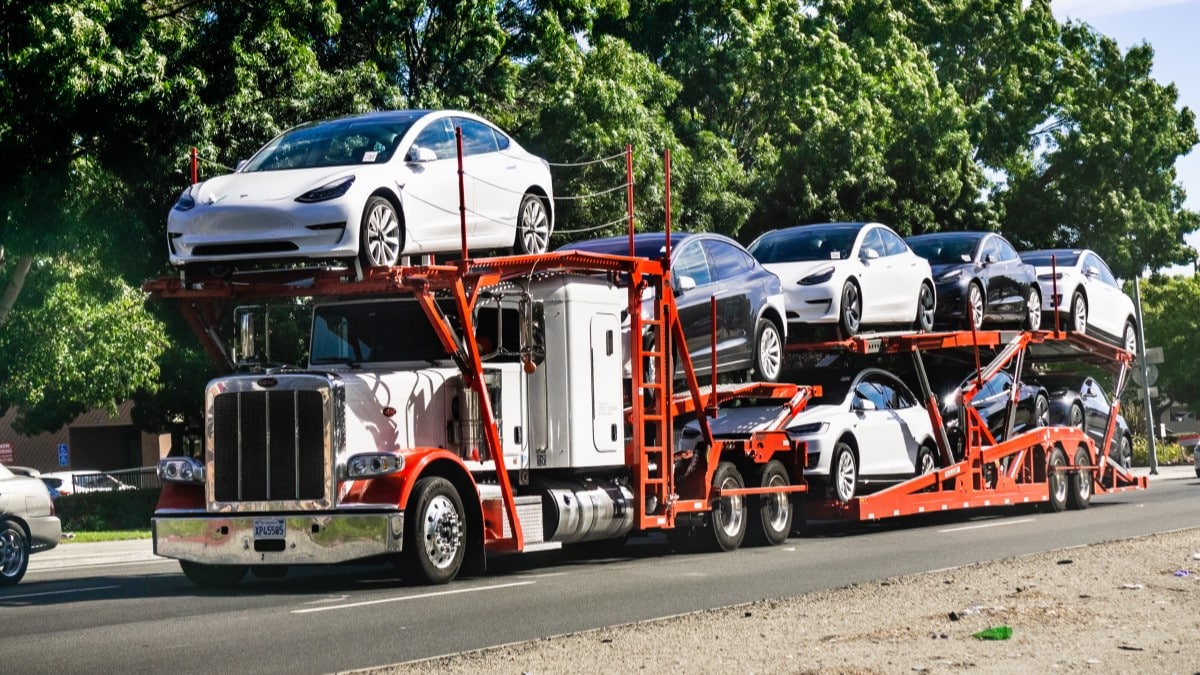President-elect Donald Trump’s transition team intends to “kill” the $7,500 tax credit for electric vehicle (EV) purchases, according to Reuters. The news agency cites “two sources with direct knowledge of the matter.”
How the Credit Works Today
2022’s Inflation Reduction Act created the current tax credit system. The law had two goals — spur more Americans to buy electric vehicles and force the auto industry to build EV supply chains outside of China.
Related: How Do EV Tax Credits Work?
It allows Americans to claim a tax credit of up to $7,500 on the purchase of a new electric car but requires both the buyer and the car to meet certain conditions.
Buyers are subject to income limits, and there’s a price threshold on the vehicles that qualify.
A car qualifies for half the credit if at least 60% of its battery is built in North America. It qualifies for the other half if at least 50% of the critical minerals used in that battery originate in the U.S. or certain trade partners.
Those requirements increase by 10% each January, incentivizing the auto industry to shift its supply chains away from China.
When shoppers lease an EV, all those requirements are waived. Leased EVs qualify for the credit no matter how much they cost or where they’re built – an IRS loophole that upset some lawmakers who helped write the act.
Buyers can use the credit as a down payment.
President Can’t Kill It on His Own
A law created the tax credit, so any move to end it would require the votes of Congress. The transition team hopes to include the measure in a package of “broader tax-reform legislation,” Reuters reports.
Legislation is typically a slow and messy process. Proposed changes can be subject to months of debate and rewriting. Presidents rely on allies in Congress to make the changes they want, and those allies are accountable to their constituents, not the White House.
There Is No EV Mandate
During his election campaign, Trump spoke often of ending an “EV mandate.” There is no federal law or regulation mandating that automakers build EVs. There are, however, a series of policies that encourage them to build more electric cars each year.
The tax credit law is just one such measure.
Trump Could Make Other Changes Affecting EVs
While the White House cannot kill the tax credit, it has more influence over other policies that encourage automakers to build EVs.
Congress writes laws. Departments of the executive branch then write the specific regulations that carry them out. Congress doesn’t answer to the president, but those departments do.
The outgoing Biden administration enacted two significant sets of regulations meant to encourage a nationwide transition to EVs. The White House could more easily undo those.
One enacted strict tailpipe emissions rules. That rule didn’t require automakers to build EVs. But building EVs is the easiest way to comply with it. It ladders in slowly, peaking in 2032.
A second required automakers to sell vehicles that average 38 mpg by 2031. That rule doesn’t require automakers to build EVs, either. But the easiest way for them to improve their average mpg is to sell more electric cars.
The White House could write regulations easing those requirements without any congressional input.
State Rules a Factor, Too
The federal government is the most powerful authority regulating cars in the U.S.
But many states have their own measures. California, Maryland, Massachusetts, New Jersey, New York, Oregon, and Washington have all banned the sale of new gas-powered cars within their borders after 2035. All will allow the import of gas-powered cars from other states, and none will ban the sale of used gas-powered cars.
Cars Are a Global Industry
American regulations, however, aren’t the only factor affecting American cars.
Most automakers now sell the same cars in many countries. They build them to meet the strictest requirements they’ll encounter.
Europe has its own strict fuel economy regulations. A European Union (EU) rule will ban the sale of new gasoline-powered cars in EU member states after 2035, with limited exceptions.
What It Means If You’re Car Shopping Now
Should the next White House succeed in ending the EV tax credit, it will likely dramatically slow EV sales. But any move to end the credit will take time, so shoppers don’t need to rush to buy an EV quickly or risk losing the credit.
The list of cars qualifying for the credit will likely shrink in January as requirements become more stringent. That may be a reason to speed up. Headlines about the president-elect wanting to end the credit are likely not a reason to speed up.
Beyond the tax credit, a complicated lattice of laws and regulations at the federal and state level, and even overseas, influences the cars Americans can buy. Many are outside the reach of the White House.








